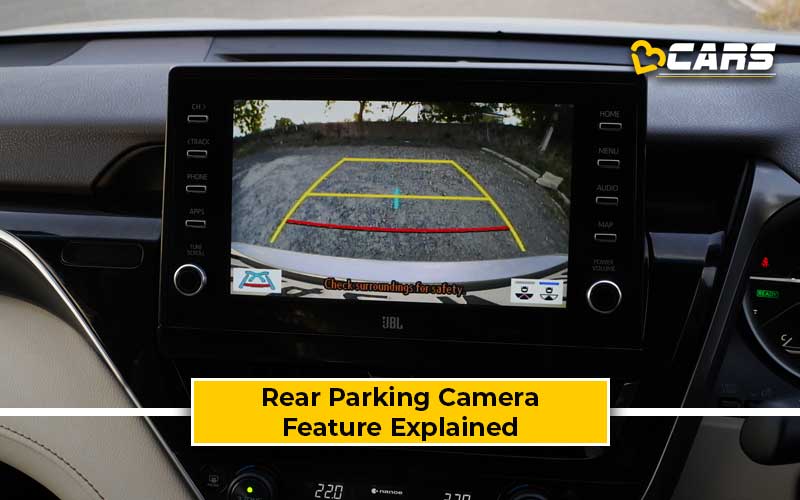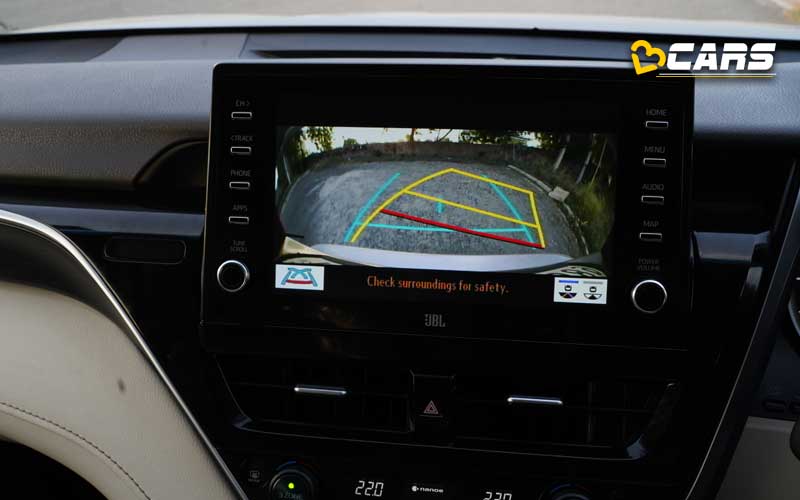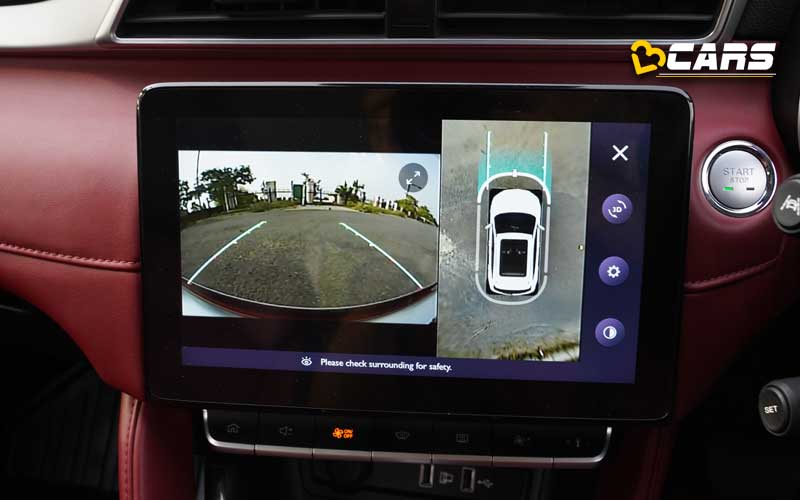Rear Parking Camera - Feature Explained
In this Feature Explained article, we’ll present the most detailed analysis of the rear parking camera in your car. We’ll list out the pros and cons, explain how it works, provide the typical cost of getting a rear parking camera from the aftermarket, and repair and replacement costs of the rear parking camera. Based on this analysis, we’ll suggest if you should add this feature to your car or skip it.

What Are The Pros And Cons Of A Rear Parking Camera?
In today's world of tight parking spaces and busy roads, a rear parking camera (also known as a backup camera or parking assist camera) has become an essential safety feature for many drivers. But like any technology, it has its pros and cons. Let's explore the benefits and drawbacks of rear parking cameras to help you decide if it's the right choice for you.
Pros of a Rear Parking Camera:
- Easier Parking: A rear parking camera provides a clear view behind your vehicle, making reversing into tight spots or parallel parking a breeze.
- Enhanced Rear Visibility: Unlike mirrors, a camera offers a wider field of view, eliminating blind spots and allowing you to see exactly what's behind your car.
- Parking Guidance Systems (on some models): Some rear parking camera systems come with on-screen parking assistance features like static or dynamic guidelines that adjust as you turn the steering wheel, helping you manoeuvre into even the trickiest parking spaces.
Cons of a Rear Parking Camera:
- Driver Distraction: While a camera offers a better view, you may need to shift your focus between the screen and your surroundings while reversing, potentially leading to driver distraction. It's crucial to maintain situational awareness when using a camera.
- Low-Light Performance: Some cameras may struggle in low-light conditions, displaying a grainy or dark image. Consider a night vision parking camera for improved visibility at night.
- Limited Blind Spot Coverage: Rear parking cameras typically cover the area directly behind your vehicle. They may not eliminate all blind spots, especially low-lying objects or those at wider angles. Consider a system with rear blind spot detection for more comprehensive coverage.
- Not a 360-degree Solution: Unlike a 360 surround view camera system, a rear camera only provides a view behind your car.
What Is A Rear Parking Camera?
A reverse parking camera, or a rear parking camera, is a tiny camera that is attached to the back of the car. Reverse parking cameras are generally attached to the tailgate, number plate holder or the bumper of the car. Rear parking cameras capture what’s behind the car and relay it onto the car’s infotainment system or a dedicated display in real-time. Hence, they are good tools to keep track of what’s behind the car while backing into a parking spot. Some reverse camera systems even offer static or bending guidelines to add perspective and help you gauge where your car will end up if you keep reversing.
How Does A Rear Parking Camera Work?
A rear parking camera aids the driver in parking the car by providing a real-time feed of what’s behind the car. The video feed is displayed through the car’s infotainment system to help the driver position the car properly while reversing into a tight spot. Here’s a fun fact you probably didn't know about reverse parking cameras. The video captured by the rear parking camera that you see on the infotainment system is a mirrored image of what’s behind you. Without this mirrored output, you could steer into an obstacle you were trying to avoid.
How Expensive Is It To Repair Or Replace A Rear Parking Camera?
The cost of repairing or replacing the rear parking camera on a car varies based on the manufacturer. Even a damaged glass on a reverse parking camera will need a full camera replacement as compatible spare glass is normally not available due to negligible demand for such repairs. Typically, reverse parking camera assembly on most mass market cars cost between Rs. 5,000 to Rs. 10,000 depending on the make and model. Unless another car rear ends your vehicle, or you smash into an obstacle while reversing, it is hard to damage a rear parking camera system.
What Is The Cost Of Aftermarket Rear Parking Sensors?
A basic but decent quality aftermarket rear parking camera system with display is priced from Rs. 4,000 to Rs. 15,000. If your car already has a display, then you only need to invest in a camera and you can use the existing display for the live feed. However, beware that most affordable aftermarket reverse parking cameras offer poor resolution and show a grainy video feed on the parking display inside the car. Some of them also don't work well in extremely dark and bright situations. In an unlit environment, they may show a dark view while on a sunny day, they may show a washed out view.
How Easy Or Complex Is It To Install Aftermarket Rear Parking Camera?
Based on the type of system, it can be really easy or super difficult to install a reverse parking camera on your car. To install an aftermarket reverse parking camera, you will need to drill a hole into the rear bumper or mount it onto your number plate then wire the camera to the infotainment system or the aftermarket display provided with the kit. Hence, it is best to leave this job to a professional.
What Cars Get A Rear Parking Camera From The Factory?
Almost all cars in the B2 and higher segments offer a rear camera. Examples of popular B2 segment cars that offer this feature include the Tata Nexon, Maruti Baleno and Hyundai Venue.
Verdict - Should I Get An Aftermarket Rear Parking Camera?
Having a reverse parking camera can improve your car ownership experience significantly. It’s a must-have feature for all car buyers and owners. A reverse parking camera helps you avoid obstacles while reversing better than rear parking sensors and saves your car from scratches, dents and even serious crashes. While it is a tad more expensive than getting aftermarket rear parking sensors, its benefits far outweigh the incremental cost over a set of parking sensors.
That said, if you plan to install this feature from the aftermarket, then make sure to research all available options before selecting one that fits your needs. Camera quality, video resolution, ease of installation are some of the things you need to consider when buying an aftermarket reverse parking camera. Unfortunately, only some of the factory-fit rear cameras offer dynamic guidelines feature. So, you’ll have to work without them if you’re installing an aftermarket camera.
Note: Check your Car EMI with our - Car Loan EMI Calculator
You can use our Fuel Cost Calculator to see how much any petrol, diesel or CNG car will cost to run based on the latest fuel price in your city.




Does car manufacturers provide rear parking camera as accessory
Does car manufacturers provide rear parking camera as accessory
what do you think about this backup camera is it good? should I buy it? https://www.automotiveglobespecialist.com/wifi-solar-powered-reversal-camera